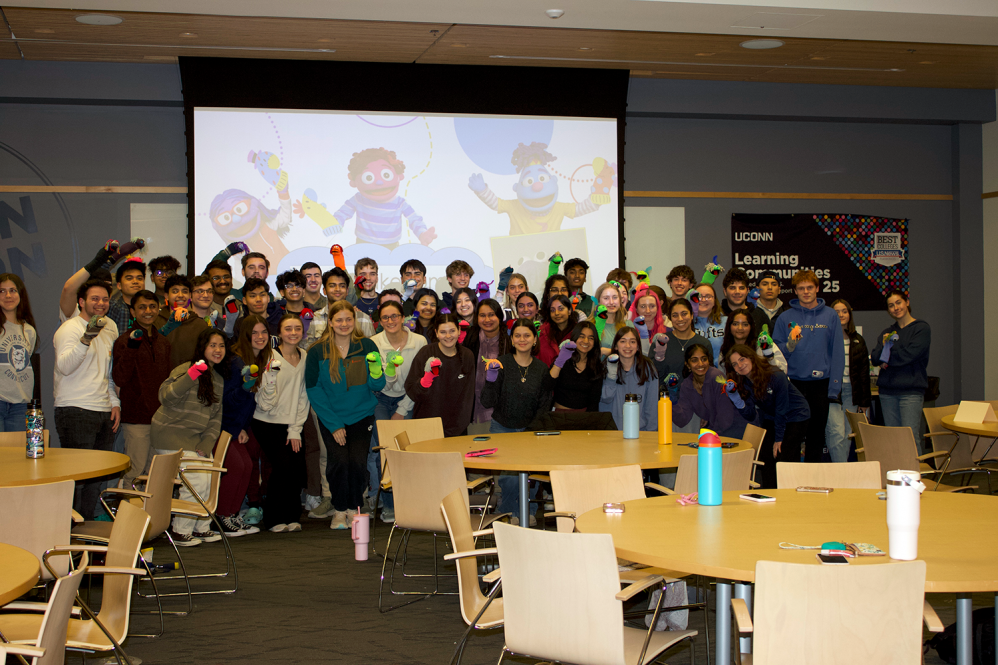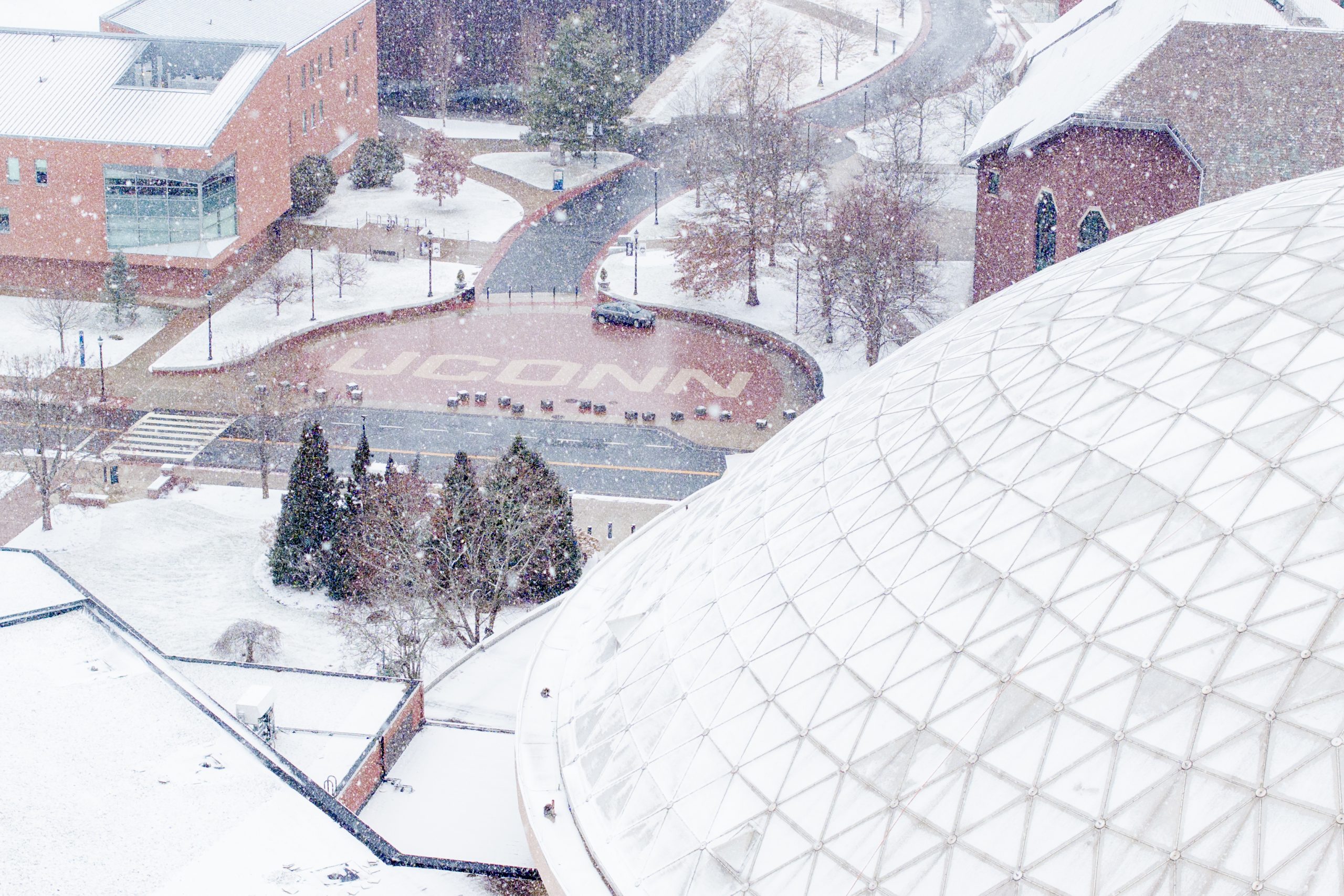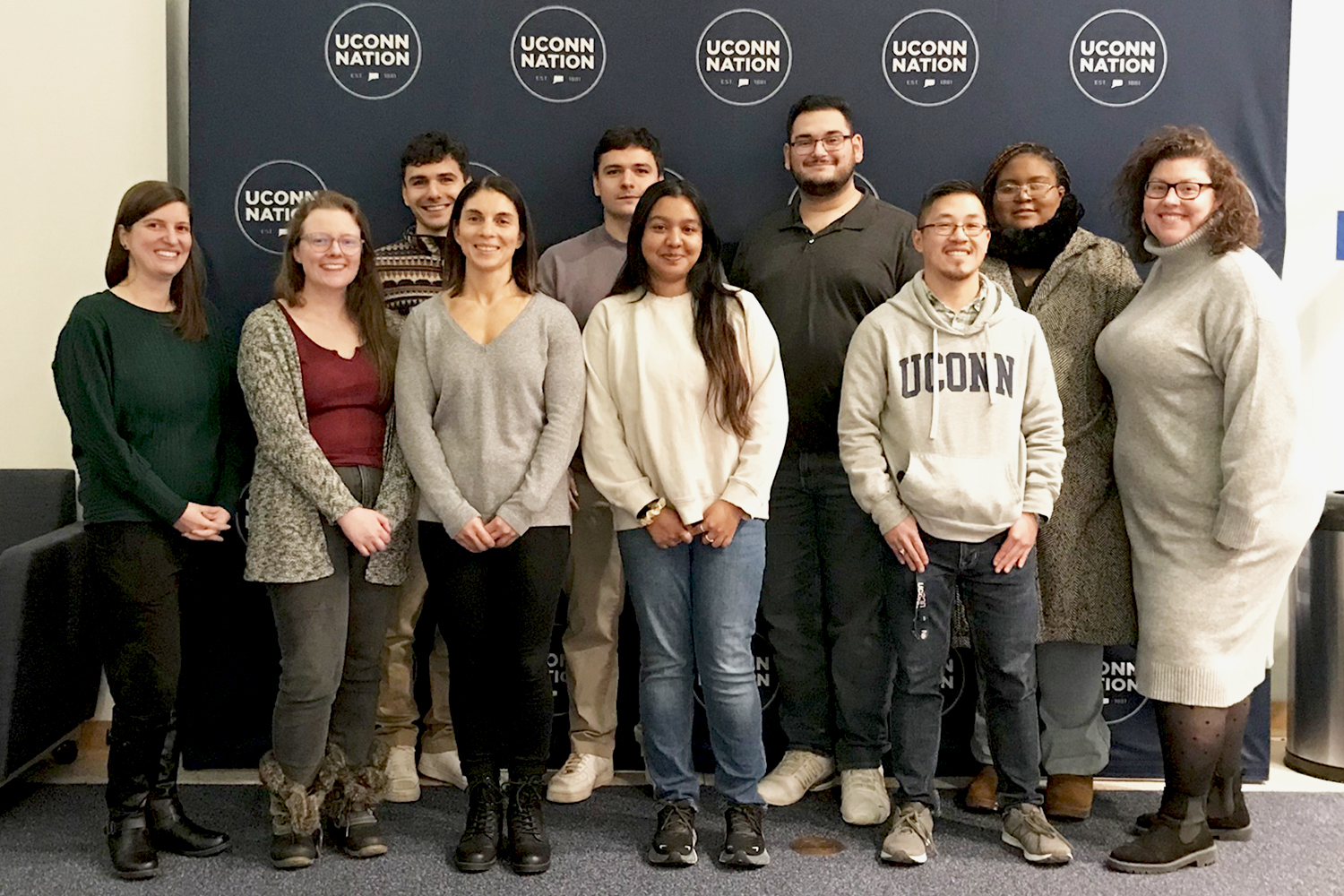The Public Health House Learning Community (PHHLC) was excited for the recent opportunity to collaborate with UConn’s Collaboratory on School and Child Health (CSCH).
“The tradition of hosting events during National Health Week with CSCH partners has enabled our students to gain knowledge and skills that will prepare them for their ultimate careers,” states Dr. Jaci Van Heest, director of PHHLC. This year, in addition to CSCH, the event featured the Ballard Institute Museum of Puppetry (BIMP) to introduce PHHLC students to the interdisciplinary project, Feel Your Best Self (FYBS), which allows kids and caregivers to explore emotion-focused coping strategies to promote well-being using fun videos, puppetry, and other engaging materials available in an online toolkit.
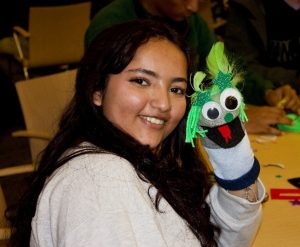
As part of the event, UConn students enjoyed creating their own sock puppets, and then put their skills to use to help prepare supplies for puppet kits for future FYBS workshops in schools. Thanks to the collaboration and this event, students got to see one real life application of taking a problem, identifying the need, and problem solving to figure out a solution. This is something that most of these students, wanting to venture into the public health field, can apply in their careers moving forward.
Many students agreed that this FYBS can help future generations. Undergraduate exercise science major Delany Lucia ’27 (CAHNR) shared, “I thought it was a fun and innovative way to teach kids about their emotions. I know my elementary school struggled to come up with different ideas to work with kids. This seems like a way without funding that you can really help kids while being fun, creative, and engaging.”
The collaboration with BIMP, CSCH, and FYBS has provided our students with a unique innovative partnership aimed at addressing an important public health issue. Our students work on their own innovation projects and being exposed to FYBS enables them to understand what can be achieved. — Jaci Van Heest
Similarly, Sabrina Smith ’26 (CLAS) stated, “as a psychology major and someone also very interested in mental health, I think it’s good to start kids at a young age so that they are in tune with their emotions.” Many other students had similar first impressions and believed that FYBS can make a real difference and impact children’s lives. Seeing this project in action allowed PHHLC students to imagine what can be accomplished with their own innovative projects.
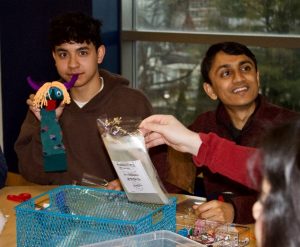
Students shared experiences of not having a program like this when they were growing up as elementary school children. When asked how a program like this would have impacted them in their elementary school years, allied health sciences major Molly Joseph ’27 (CAHNR) responded, “I think it would have probably been easier to kind of learn how to process my own emotions. I think you don’t really start to understand mental health and how to deal with stress until you get older and more independent, so I think this is really good way to teach little kids how to process their emotions.”
This collaborative interdisciplinary event not only allowed students to imagine how they can impact the public health field in the future but also gave students the space to let loose and enjoy themselves through the art of puppetry. Dr. Van Heest summarized the importance of these ongoing collaborations across the University: “The collaboration with BIMP, CSCH, and FYBS has provided our students with a unique innovative partnership aimed at addressing an important public health issue. Our students work on their own innovation projects and being exposed to FYBS enables them to understand what can be achieved.”
